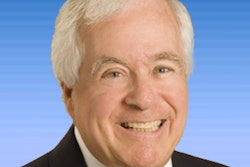
It's a wonderful time to be an entrepreneurial dentist, whether you are a junior dentist looking to buy into a practice or a senior dentist looking to either sell or expand your practice. In this column, we'll look at minority interest transactions -- better known as buy-ins. These types of transactions can be extremely advantageous to both the seller and the buyer.
From the perspective of the senior dentist, an associate buy-in is a great succession plan. Instead of just being an employee, the junior dentist becomes an owner, which makes it much more likely that the associate will remain loyal to the practice, work hard to grow the practice, and generally act and think like someone who has a valuable stake in its future.
 William Barrett is the CEO of the law firm Mandelbaum Salsburg in Roseland, NJ. Casey Gocel is a member in the firm's corporate and professional practice transitions groups.
William Barrett is the CEO of the law firm Mandelbaum Salsburg in Roseland, NJ. Casey Gocel is a member in the firm's corporate and professional practice transitions groups.This buy-in process also allows a senior dentist to handpick a successor rather than selling the practice to a stranger. An associate who buys into a practice has already proved to the owner, the team, and their patients that he or she is capable, competent, and a good fit.
Bringing on a partner also creates a bit of an insurance policy in that the agreements governing the partnership generally mandate that in the event of a partner's death, disability, or retirement, the remaining partner must buy out the deceased, disabled, or retired partner's interest for fair market value. Without a partner, the death of a practice owner could mean the death of the practice with no money passing to the owner's family.
From the perspective of the associate, a buy-in can be an amazing business opportunity. The associate gets to share in the upside of the practice instead of simply collecting a salary. In addition, a buy-in allows the associate to "dip a toe in the water" as an entrepreneur without taking the full risk that comes with owning 100% of a practice. While a minority owner, the junior dentist will have the opportunity to learn from the senior dentist how to effectively run and manage a profitable dental practice. This education provided through an associate buy-in can be an advantage over an outright purchase.
The buy-in timeline
Associate buy-ins generally take place in two steps. The associate purchases an initial minority interest in the practice. The ideal starting point is typically 10% to 20% of the practice. This allows for a testing period for both parties. If it does not work, it's a lot easier to unwind a transaction involving 10% or 20% of a practice than 50% -- or the whole thing.
Assuming all goes well, the second step is a complete buyout of the senior dentist's remaining interest in the practice. The second step will typically take place upon the occurrence of a future triggering event, such as the senior dentist's death, disability, or retirement.
Once the associate purchases an initial ownership interest, the tendency is for everyone involved to take the doctor more seriously. The associate dentist will have an opportunity to develop a deeper relationship with the staff and referral sources and also should have their complete confidence when the entire practice is eventually bought out. When things happen this way, the transition is practically seamless because the buyer has already been a partner with an ownership share, and the dentist has worked in the practice for a meaningful amount of time. As a result, the contribution of the associate is much greater than it would have been had the dentist simply remained on salary, without an ownership stake.
Cultivating a productive relationship
Bringing on a partner is essentially a marriage for your business. It requires communication, mutual respect, and a great partnership agreement, an operating agreement or a shareholders' agreement depending on the type of entity you form. Regardless of what you call it, the purpose of the agreement is to ensure seamless co-ownership and management of the practice.
The partnership agreement will ultimately be drafted and negotiated by your respective transactional attorneys. It will address dozens of issues, including voting rights, management responsibilities, CEO compensation, withdrawal provisions, personal guaranty requirements, matters requiring unanimous consent, deadlock provisions, drag-along rights, required chairside responsibilities ... and the list goes on.
It should come as no surprise that the most heavily negotiated document in a buy-in transaction is not the purchase agreement itself, but rather the partnership agreement.
Think through the serious issues -- financial, cultural, and psychological. Just as you can never predict with certainty which marriages are going to last, it's impossible to say with absolute certainty that a business partnership will work out. Most of the time, they do work out, but all parties must take the time to think through the difficult issues and have the hard conversations that this sort of change in a relationship requires. If you're willing to do that and you both go into it in good faith and with eyes open, then, in my experience, things will likely go well.
Editor's note: This has been an excerpt from the book, Buy Sell Merge: How to Navigate Successful Dental Practice Transitions for the Entrepreneurial Dentist. The book navigates the process of closing a dental practice transaction in the most effective, ethical, and successful manner possible.
Disclaimer: Nothing contained in this column is intended as legal advice. DrBicuspid.com recommends that you consult with a lawyer in your area to help understand any applicable laws.
William S. Barrett, Esq., has more than 20 years of law experience. As the CEO of Mandelbaum Salsburg, a law firm in Roseland, NJ, he has represented a wide range of businesses with a unique specialty in mergers and acquisitions.
Casey Gocel, Esq., is a transactional lawyer and equity partner of Mandelbaum Salsburg. Casey specializes in corporate transactions and also tax and estate planning.
The comments and observations expressed herein do not necessarily reflect the opinions of DrBicuspid.com, nor should they be construed as an endorsement or admonishment of any particular idea, vendor, or organization.


















